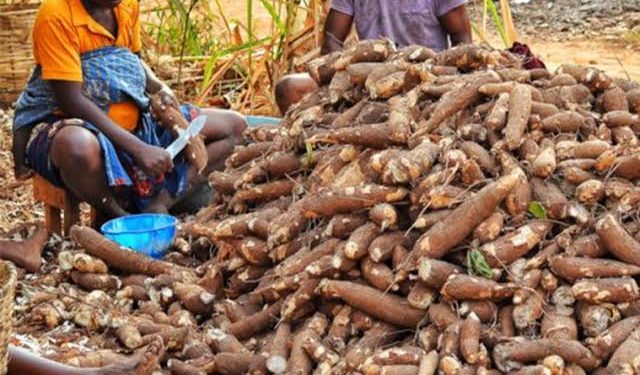A new initiative in Osun State is turning small-scale cassava farming into a profitable enterprise, offering farmers the tools, training, and markets needed to thrive as agribusiness entrepreneurs.
The Micro Cassava Enterprise Support Programme, a collaboration between CATO Foods & Agroallied Global Concepts and the British American Tobacco Nigeria Foundation (BATNF), is empowering 100 smallholder farmers with improved cassava varieties, extension services, and guaranteed market access.
According to the organisers, the programme is designed to shift farmers’ perception of themselves from subsistence producers to dynamic agribusiness operators, while also meeting the rising industrial demand for cassava. Managing Partner and Co-Founder of CATO Foods, Pelumi Aribisala, explained that participating farmers are receiving high-yield cassava stems capable of producing 45 to 50 tonnes per hectare, a dramatic increase from traditional yields.
The support package goes beyond inputs. Through its extension unit, CATO Foods is training farmers on good agricultural practices, monitoring their farms, and providing business support services to strengthen their productivity.
For BATNF, the partnership ensures one of the most critical gaps in farming—market access—is addressed. Project Manager Adetola Oniyelu highlighted that CATO Foods’ steady demand for cassava for factory use makes it a reliable off-taker, guaranteeing farmers a fair and ready market for their harvests. This, she said, directly tackles one of the biggest challenges smallholder farmers face.
The initiative has also drawn strong backing from traditional institutions. The Olupo of Oluponna, Oba Abdul Rafiu Oyekanmi Mosobalaje Bamigboye II, pledged his full support, stressing that the project will not only boost food supply but also strengthen the local economy and contribute to Nigeria’s agricultural output.
CATO Foods Co-Founder, Atinuke Lebile, added that the programme prioritises the inclusion of women and youth in agribusiness. Beneficiaries are receiving inputs, training, capacity-building opportunities, and secured markets to ensure their ventures are sustainable and profitable.
Stakeholders described the Micro Cassava Enterprise Support Programme as a model of what is possible when the private sector, development organisations, and local communities work together to empower smallholder farmers. With its end-to-end support system and focus on market-driven production, the initiative is expected to transform livelihoods in Osun State and could serve as a blueprint for strengthening MSMEs in Nigeria’s agricultural value chain.










